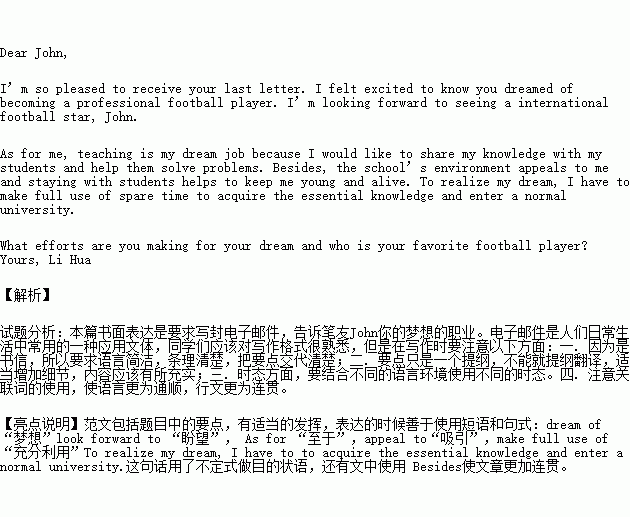题目内容
假如你叫李华,你的笔友John来信告诉你他想成为一名职业(professional)足球运动员,并询问你未来想从事的职业,请给他回一封邮件。
要点:1.你想从事老师的职业及原因;
2.为了梦想你在做哪些努力;
3.其他想和他交流的内容。
注意:1.词数100左右;2.可以适当增加细节,以使行文连贯;
3.开头与结尾为你写好,不计入总词数。
Dear John,
I’m so pleased to receive your last letter.
____________________________________________________________________________________________
____________________________________________________________________________________________
____________________________________________________________________________________________
____________________________________________________________________________________________
____________________________________________________________________________________________
Yours,
Li Hua
练习册系列答案
相关题目

